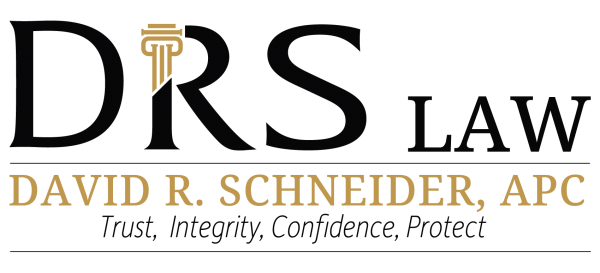If you have worked hard and accumulated significant assets, it is likely that you are enthusiastic to make sure that your assets, properties, and affairs are arranged to ensure their effective management during your incapacity or distribution upon your death. You do not want to rely on luck and happenstance.
Estate planning requires careful consideration of your personal and family circumstances, financial goals, and legal requirements. At the bare minimum, you should have in place a will. Otherwise, if you die intestate, assets will be distributed according to a state law formula, subject to litigation by third parties and family members and settlement by a court.
A Will allows you to name beneficiaries, designate guardians for minor children, and appoint an executor to take care of the administration of your estate. Much more is possible with a trust, to be discussed below, but a Will is a good start.
Why Should I Start an Estate Plan?
If an estate plan is not in place, it is nearly impossible to predict what can happen to assets and properties. In the majority of instances, a probate proceeding will be necessary and required by law. You will not be able to protect loved ones and ensure that assets are distributed according to your wishes. The cost to your family will be exorbitant.
It is beneficial to have a power of attorney in place in the event that you are incapacitated, leaving someone to make financial or legal decisions on your behalf. Similarly, it is generally advisable to have an advanced healthcare directive in place. Often referred to as a living will, it allows you to outline your medical preferences and appoint a healthcare proxy who can make medical decisions on your behalf if you are unable to do so.
Many assets, such as life insurance policies, retirement accounts, and bank accounts, allow you to designate beneficiaries who will inherit them directly. Many individuals have several of these in place, and if they have been in existence for a while, they may not have been updated. Ensuring that your beneficiary designations are up to date is an important part of estate planning. Did you name your minor children as beneficiaries? Will they be able to even use the money for their healthcare needs or educational needs?
Estate planning often involves strategies to minimize estate taxes and maximize the value of your estate for your beneficiaries. Utilizing a complete estate plan will save the family tens of thousands of dollars and a minimum of a year in delay in the management of your estate. A complete plan will set out a structure for your children or grandchildren according to your terms, not the state’s. This may include the use of trusts, gifting strategies, charitable donations, and other tax planning techniques. If you own a business, estate planning can include provisions for the smooth transfer of ownership and management to the next generation or a chosen successor. This ensures the continuity of your business and minimizes potential conflicts.
What Documents Do I Need For an Estate Plan?
Estate plans differ according to the needs and preferences of the client. Typically, documents might include:
- a last will and testament
- a trust
- a durable power of attorney
- an advance healthcare directive.
A last will and testament controls the disposition of your assets, such as bank balances, property, or prized possessions. It will detail who will receive which property and in what amount and can establish guardian arrangements if there are surviving dependents.
There are various types of trusts. When a trust is created, there are three parties. The person who puts the property in trust is the settlor of the trust. They are sometimes called a trustor or grantor. Next, there is a trustee who will manage the property for the benefit of the beneficiaries, who are the third type of party. One type of trust is a revocable living trust, which can be set up while the settlor is living. When the settlor dies, the trustee executes the trust’s instructions. The advantage is that probate, with its huge costs and significant time delays, is avoided.
A durable power of attorney grants someone you trust (referred to as an agent or attorney-in-fact) the authority to make financial and legal decisions on your behalf if you become incapacitated. The power of attorney can be broad or limited in scope, depending on your preferences.
What Are the Legal Fees for Estate Planning?
The cost of estate planning varies depending on the services required. In some instances, an hourly rate will be charged. When an estate plan is first designed and involves several documents, flat fee packages may be preferred and are most common. For larger estates, the percentage of the estate may dictate the amount of the legal fees and falls between 1 and 5%, depending on the complexity involved.
What Qualifies Me for an Estate Plan?
You qualify for an estate plan if you have assets, healthcare decisions, or custody of dependents that you want to control if you become incapacitated or die. If you own your own home, mortgage or not, you need a complete estate plan. Essentially, everyone qualifies for an estate plan, the extent of which depends on the size and complexity of the estate.
Who Can Help Me Prepare My Estate Plan?
A qualified, experienced estate planning attorney can help you prepare your estate plan. Experience helps in several ways. First, the experience can help make sure that the estate plan is legally sufficient. Second, the experience is useful for helping you design the plan that will meet your objectives and help you figure out what those objectives are.
When you don’t know what the law allows, it is hard to design a plan. An experienced attorney like David Schneider has met with and helped many families, households, and individuals define their needs and construct a successful plan. He can help anticipate your needs and explain what other similarly situated parties have done. Estate planning is not a one-time event. Life circumstances, laws, and personal preferences can change over time, so it’s essential to review and update your estate plan with a professional to ensure it remains current and aligned with your goals.
Estate planning consultations are available virtually and in the office, and David is happy to help clients throughout California. He has helped thousands of families successfully set and achieve their estate planning goals. David sees clients by appointment only to ensure that each has his undivided attention. Contact us to schedule a free consultation today at 805-374-8777 or dschneider@drs-law.com.
We look forward to hearing from you and helping you set up your comprehensive estate plan, including a trust, a pour-over will, durable power of attorney, advanced healthcare directive, and nomination of a guardian and special needs trust, where needed.
You can learn more about the Law Offices of David R. Schneider and read past blog posts here

